The most dangerous country in Europe for journalists
There are at least 33 journalists currently locked up inside Belarusian prisons. Reporters without Borders describes Belarus as Europe's most dangerous country for journalists, writes Steve Cannane is the ABC's Europe bureau chief in London.
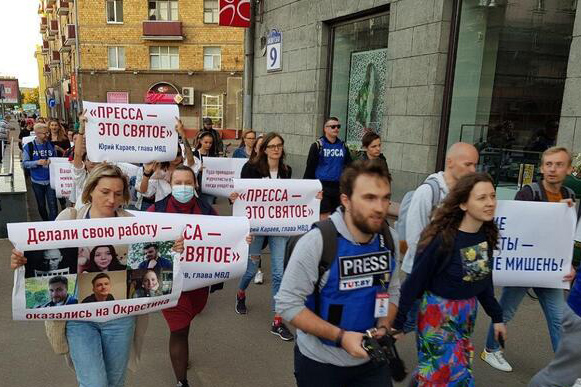
Iryna Novik fled to Lithuania in June 2021, a week after she was released from prison.
Her crime, in the eyes of the Lukashenko regime, is so preposterous it is scarcely believable.
Steve Cannane, United Kingdom
Steve Cannane is the ABC’s Europe bureau chief in London. Previously he was a reporter with the ABC’s Investigations Unit and had been a Europe correspondent from 2016–2018. Prior to that posting, Steve was the host of The Drum and a reporter at Lateline. He is the author of Fair Game: The Incredible Untold Story of Scientology in Australia.
Ms Novik, was working as an editor at the news website HrodnaLife on the day that Belarusian air traffic control told a pilot flying a Ryanair plane from Athens to Vilnius that there had been a bomb threat and the flight needed to land in Minsk.
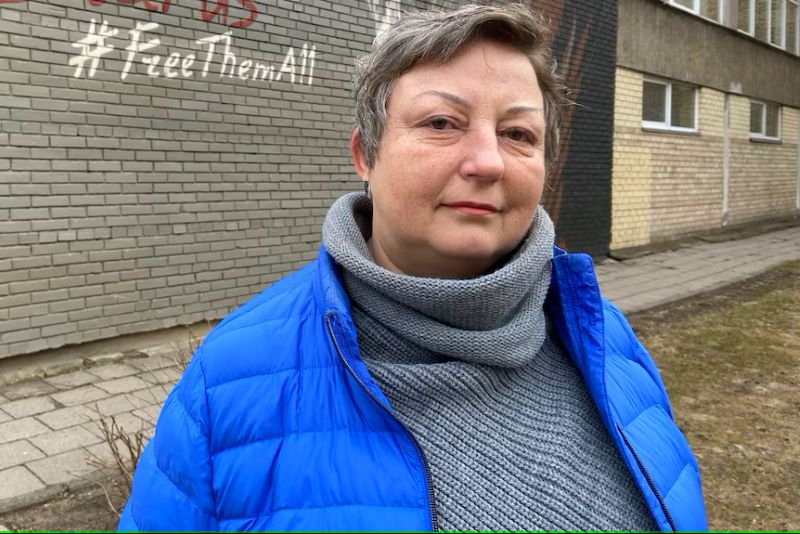
The incident would later be condemned by the US Justice Department as an act of international aircraft piracy.
Belarusian authorities wanted the flight diverted so they could arrest the anti-government blogger Roman Protasevich who was on board.
Mr Protasevich was arrested, detained and is currently facing trial. He and two others were accused of over 1,500 crimes including insulting the president and setting up a terrorist organisation.
When the story broke, HrodnaLife ran an article and Ms Novik became collateral damage.
«All that was necessary to imprison me was a photo of a Ryanair airplane,» she tells the ABC.
The photo that accompanied the story included a watermark of Nexta – a media outlet run from Poland that helped co-ordinate protests against the Lukashenko presidency. The Supreme Court of Belarus had designated it a terrorist organisation.
As one of the editors, Ms Novik was held responsible for publishing the photo with the forbidden watermark. It was only up for five hours before it was taken down.
She was charged with the «distribution of extremist materials, containing calls to extremist activity,» and fined around $400. She left the country soon after.
«Practically speaking, nowadays it’s impossible to be a journalist in Belarus,» she says.
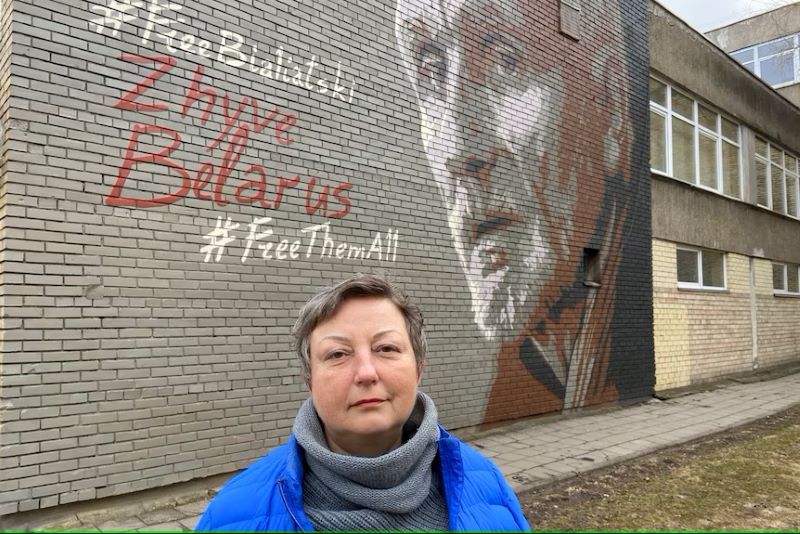
Ms Novik describes the conditions she experienced in prison as inhumane. She was placed in solitary confinement and denied medical treatment.
She despairs at the thought of so many of her colleagues being imprisoned, some of them for up to 15 years.
«Every minute spent there significantly damages a person’s health and it destroys my colleague’s talents,» she says.
«The realisation that I can’t do anything to help them is very hard for me.»
It’s a feeling that is familiar to Barys Haretski. He is the deputy chairman of the Belarusian Association of Journalists and also fled Belarus in 2021.
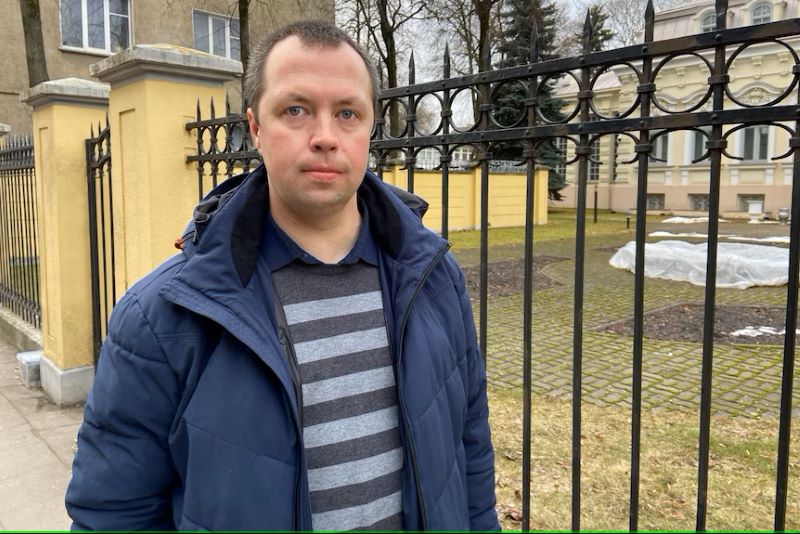
«We were forced to leave when the regime searched our offices for the second time,» he tells the ABC.
«If we didn’t leave — we would have been imprisoned like our colleagues from the human rights organisation Viasna.»
As we spoke outside the Belarus Embassy in Vilnius, Mr Haretski noticed cameras from inside the building begin to film us. He is used to being monitored by Belarus’s security services.
In February, the KGB designated the Belarusian Association of Journalists as an extremist organisation. Being a member of the journalist’s union in Belarus is akin to be a part of a terrorist group.
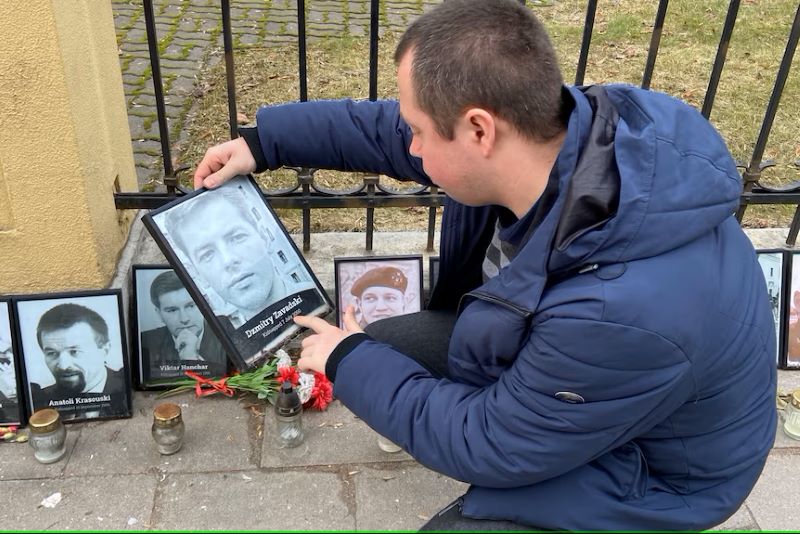
«Every person in Belarus, who calls himself a member of the «Belarusian Association of Journalists is now at risk of being imprisoned for up to 6 years because of his connection with an extremist organisation,» Mr Haretski says.
«All of them are still our friends and of course, we’ll try to help them in any way possible.»
Read more:
Aliaksandr Mantsevich charged with «spreading false information»
“I see contradictory attitudes towards Belarusians.” Hot topics at Kyiv press conference
Journalists Padabed and Lazarau recognised as political prisoners
 @bajmedia
@bajmedia
